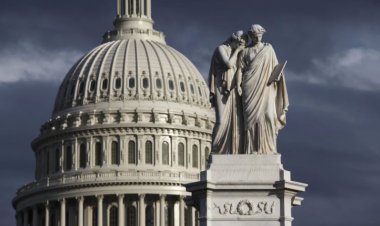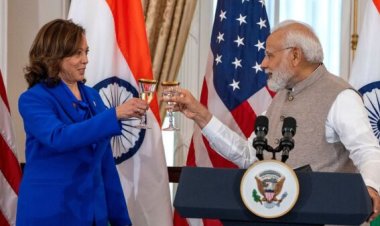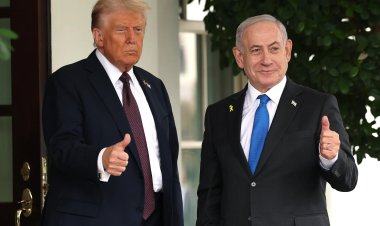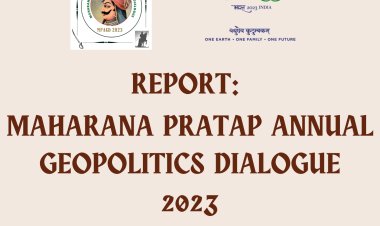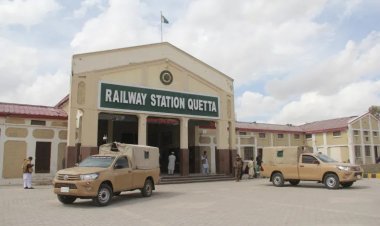Navigating Democracy: Challenges and Opportunities in the upcoming 2024 United States Elections
The forthcoming 2024 American presidential election takes place amidst a context of worldwide instability and internal turmoil. The article discusses some of the major Challenges and Opportunities .
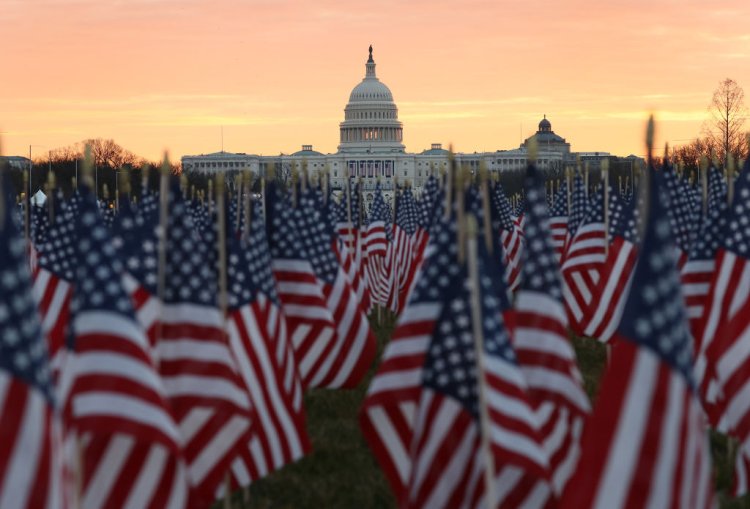
Commentary
By Niharika Godara
Introduction: Ambiguity in an Evolving World
The forthcoming 2024 American presidential election takes place amidst a context of worldwide instability and internal turmoil. Amidst a growing crisis on the global arena, disagreements among political factions in Congress on foreign policy priorities are intensifying worries about America's future obligations.
The conflict between Israel and Hamas is being leveraged by Republicans who support Trump as a means to manipulate U.S. backing for Ukraine. The Republicans criticise President Joe Biden's choice to hold a meeting with Chinese President Xi Jinping during the APEC conference in November, while Donald Trump's warning to pull the United States from NATO has the potential to cause further instability in Europe.
The existential challenge facing democracy
The 2024 election holds significant importance not only in selecting a leader, but also in shaping the fundamental principles of democracy, both domestically and internationally. The principle of a peaceful transfer of power, a fundamental democratic standard, is currently being challenged, as around two-thirds of Republicans adhere to the 'Big Lie' narrative concerning the 2020 election.
The partisan conflicts escalate as the 2024 elections get near, exposing profound rifts on significant social and economic matters. The outcome of the midterm elections has resulted in a favourable shift of power towards the Republicans, and the previously seen spirit of cooperation between political parties under Biden's administration appears to be increasingly difficult to achieve. The refusal to accept conflicting ideals narrows the opportunities for collaboration between political parties, which is a fundamental aspect of democratic principles.
Assessing the State of Democracy: Obstacles and Remedies
During the past presidential term, certain events took place which some experts believe had adverse effects on America's democratic principles. As a result, credible institutions have downgraded America's democracy score. The presence of economic and cultural uncertainties, along with several leadership decisions, may have contributed to the emergence of certain challenges such as social fragmentation and polarization, which can hinder democratic discussions. Additionally, some members of the Republican Party have been accused of disregarding factual information, exacerbating racial tensions, and engaging in hostile actions against certain groups.
The gradual deterioration of democratic principles, driven by the dissemination of misinformation and efforts to invalidate electoral outcomes, presents a substantial threat. Attempts to tackle income inequality have been insufficient, intensifying cultural alienation and political instability. Trump's leadership has significantly fuelled the surge of radical party polarisation, however economic and cultural factors also play a role in fostering discontent.
Project 2025: An Insight into an Uncertain Future
Trump's supporters, under the influence of Project 2025, pose a threat to a future in which those who oppose Trump may be subjected to persecution, the autonomy of the Justice Department may be undermined, and the Insurrection Act may be utilised as a weapon. The disregard for empirical evidence and scientific knowledge, especially in policy pertaining to climate change, implies a possible regression in crucial domains.
Prudent optimism: Indications of resilience
Despite valid concerns, there are grounds for prudent optimism. The American Civil freedoms Union, as a prime example of civil society, has exhibited remarkable endurance, as evidenced by the surge in donations that have bolstered their legal efforts to combat limitations on civil freedoms. Notwithstanding the alarming assault on the Capitol in 2021, democratic institutions demonstrated their resilience by officially validating the outcomes of the 2020 elections.
The battle against disinformation is of utmost importance, particularly when it comes to domestic sources, which present a substantial obstacle. Individuals endeavouring to reveal inaccuracies encounter political coercion from Trump's Republican adherents, who denounce these endeavours as an elite- backed 'censorship-industrial complex' aimed at suppressing freedom of expression.
Anticipating the Future: The 2024 Elections and Beyond
With the approach of the 2024 elections, Democrats and Republicans are confronted with a pivotal decision. Adhering to regulations, exposing misinformation, and resolving election misconduct through domestic judicial systems may be the means to protect democracy. Nevertheless, employing emotionally charged, reactive strategies may ultimately lack credibility over time.
Despite the challenges, there are grounds to be cautiously optimistic about the durability of U.S. democracy. The resolute commitment of civil society, demonstrated by heightened philanthropic contributions and legal disputes, highlights the capacity to resist measures that erode democratic principles. The upcoming 2024 elections will undeniably have a significant impact on the future course of the United States. As the nation embarks on this crucial election cycle, President Biden's objective of fostering unity becomes increasingly crucial, though more challenging to accomplish in a society characterised by profound divisions and uncertainties.
Disclaimer: This paper is the author's individual scholastic contribution and does not necessarily reflect the organization's viewpoint.
Niharika Godara completed her graduation in Political Science Hons from DU and currently pursuing Masters in International Relations from JGU. Her interest areas are geopolitics and diplomacy and the role of international institutions in addressing global challenges.



